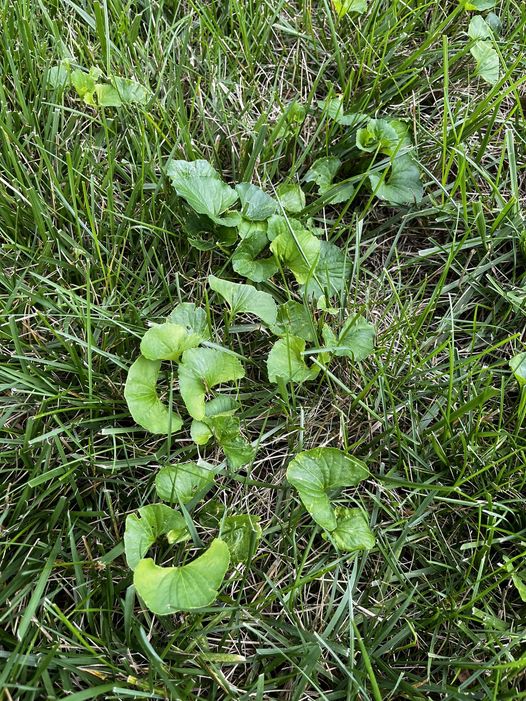Some people opt to kill weeds with herbicides because they are highly effective, less labor intensive, and provide long-term solutions.
However, getting rid of weeds in lawn naturally is the best option for the sake of the environment, pets, and your well-being.
Despite today’s herbicides being more selective, they still pose certain risks. Therefore, any strategy that doesn’t involve introducing chemicals to your lawn is always better.
With natural weed control, your kids and pets can safely play on your lawn whenever they want.
There are various ways on how to get rid of weeds in grass naturally. Below are some excellent options.
Naturally Ways To Get Rid Of Weeds In Lawn
Eliminate weeds using these 10 natural methods and avoid store or industrial-bought weed killers.
1. Hand Pull the Weeds
Sometimes the fastest and most effective weed control method, especially when dealing with a few perennial weeds, is to pull with your hand.
This approach may be labor intensive, particularly on a big lawn, but highly effective, leaving you with a weed-free yard.
Hand pulling is especially effective against purslane and dandelions.
Related Posts:
- How To Get Rid Of Dandelions In Yard
- Easiest Way To Pull Weeds Faster
- 15 Weeds That Look Like Flowers
- How to get rid of clover in lawn naturally
The best time to pull out weeds is after rains or watering your lawn because it is easier to uproot weeds when the soil is moist. A trowel or small shovel will make your work easier.
Also, ensure you pull out every part of the weed, including the roots, leaves, and stems.
Do not grab many of them at ago to avoid splitting the weed in two. Also, protect your hands safe by putting on gardening gloves.
2. Kill Weeds with Vinegar
Vinegar’s acetic acid kills weeds by sucking water out of them since it is a desiccant. It is particularly effective against young plants whose roots haven’t matured yet.
Before spraying weeds with vinegar, ensure you localize the application before vinegar will also kill your grass.
Related: Natural Weed Killer With White Vinegar and Dawn
Also, use horticultural vinegar with 20% acetic acid instead of white vinegar since it has only 5% acetic acid. You can mix vinegar with dish soap.
3. Use Boiling Water
You can utilize the easily accessible boiling water to eliminate those pesky weeds by withering them. This straightforward method is effective against young weeds but doesn’t work against the weed seeds already underground.
Pour freshly boiled water or what remained from cooking foods like potatoes and pasta on the weed stems and leaves, wait for the weeds to dry out, then pull them out. Consider this method for weeds growing in the driveway or sidewalk cracks.
4. Corn Gluten Meal
You can stop weeds from germinating and growing using corn gluten meal. This method doesn’t work on existing weeds, though. Also, it can affect other seeds, but unless you apply it when seeding your lawn, this should not be a problem.
5. Kill Weeds Using Organic Mulch
Like any other plant, weeds thrive with sunlight, moisture, and nutrients. Depriving them of these requirements will kill them.
Kill weeds using organic mulch, which keeps the seeds from touching the soil and spreading. You can mulch your lawn using straw, pine bark, newspapers, cardboard, and clippings.
Organic mulch also disintegrates, fertilizing your lawn in the process.
6. Use Weed Torch
Using weed torch aims to wilt the weeds away; typically, the weeds will die out after a day or two. Caution is paramount, though, since fire can be destructive, so avoid using a weed torch near dry bushes and be careful when using it near sandboxes, garden beds, and wooden decks.
7. Kill Weeds with Salt
Dehydrate weeds and disrupt the internal balance of water in the cells using salt. The kind of salt to use for weed control is non-iodized or iodized table salt and not sea salt, rock salt, or Epsom salts (magnesium sulfate).
Sprinkle salt at the weed’s base is one way to use salt as weed control. Over time, the salt will penetrate the ground rendering the soil unconducive for growing plants. Alternatively, dissolve salt in water, then apply it to your yard.
The ratio of the mixture will depend on the part of the yard you wish to apply it. If you’d rather not kill other plants, the ratio should be 1:2 (salt: water).
On the other hand, if the soil’s long-term health isn’t a problem, a more potent mixture is better, so go for a 3:1 or 2:1 ratio. Such a solution is best for areas like driveway cracks or patio stones.
Do not soak the saltwater solution on the plant roots to avoid harming the surrounding plants and soil. You can pour the solution onto the lawn using a container or a spray bottle. This method isn’t ideal for vegetable gardens and tight-spaced flowerbeds.
You can add dish soap to a saltwater solution.
8. Try Vodka
If only a few weeds are in your lawn and you are exposed to the sun directly, dry them out using vodka. This approach is unsuitable for weeds that thrive in the shade. Also, vodka doesn’t discriminate, so protect your grass.
Mix vodka (an ounce) and water (two cups) with liquid soap (few drops) in a spray bottle.
9. Use Lemon
Like vinegar, lemon is also highly versatile, serving various purposes at home, including killing weeds. The citric acid in lemon dries out weeds. Spray the weeds with lemon juice, then watch them dry and die.
To improve this recipe’s effectiveness, add vinegar to it. Remember that lemon doesn’t discriminate, so it will kill any plant it touches, so protect your grass.
10. Make a Natural weed killer with vinegar and Dawn
Last on our list is natural weed killer made at home by mixing equal parts dish soap, salt, and vinegar. The solution makes an effective, safe, and cost-effective weed killer.
Also read: Natural Weed Killer With White Vinegar and Dawn
Spray this mixture on weed stems and leaves, making sure it doesn’t get to the surrounding grass to avoid killing them.
Multiple applications may be needed to make the remedy effective.
Final Thoughts
With the above-discussed natural methods of weed eradication, you can get rid of these pesky plants without harming your grass.
Note that multiple applications might be necessary to have a weed-free lawn. Besides their effectiveness, the best part is you can easily source most of these methods at home.

Hey there, I’m Derek Schew, a writer for Lawnholic.com, where we cover everything and anything related to lawns. As someone who’s spent countless hours tending to my own lawn, I’m passionate about sharing my knowledge and helping others achieve the perfect yard. From lawn care tips to product reviews, I’m committed to providing our readers with the most accurate and up-to-date information available. So whether you’re a seasoned lawn enthusiast or just getting started, I invite you to join our community and discover the joys of a lush, green lawn.

